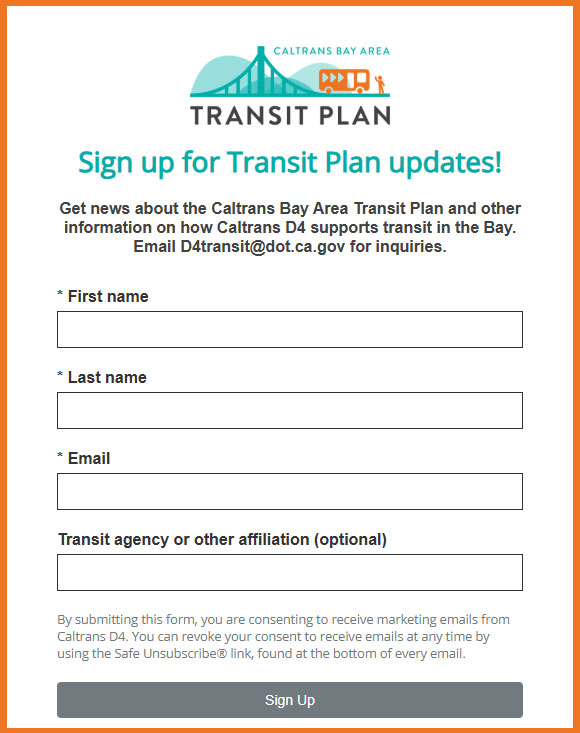Caltrans District 4 Transit Plan
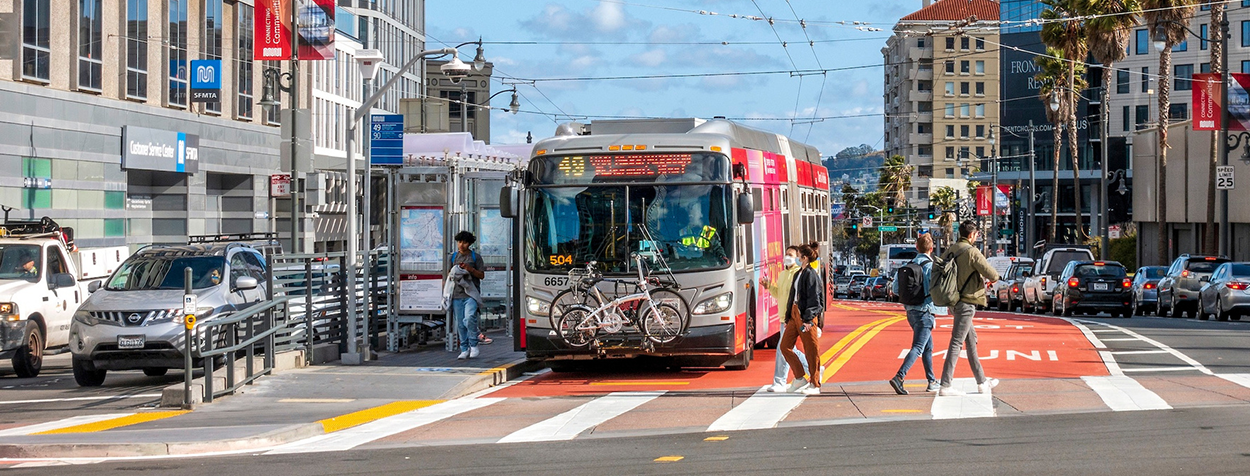
About
Caltrans Bay Area District 4 has released The Caltrans Bay Area Transit Plan Report! This plan identifies infrastructure improvements and district-level best practices and strategies that can increase transit reliability, access to transit, and encourage more transit use along the State Transportation Network (STN).
Download The Caltrans Bay Area Transit Plan Report!What Does the Plan Include?
An inventory of existing transit-supportive facilities on the STN.
District-level goals, objectives, and performance measures for transit-supportive facilities, with an emphasis on equity.
Strategies and actions for Caltrans Bay Area and local and regional transit agencies to streamline the development of transit-supportive facilities.
A Complete Streets Transit Toolbox of best practices, common standards, and types of transit-supportive facilities to consider on the STN.
What is the Complete Streets Transit Toolbox?
The Complete Streets Transit Toolbox was developed by Caltrans District 4 to provide information to assist local and regional transit agency and Caltrans project staff (including planners, project managers, engineers, designers) looking to build infrastructure along the STN, including transit priority and transit access facilities.
Download The Complete Streets Transit Toolbox
Transit priority facilities help create faster, more reliable transit. Some types of facility improvements outlined in the toolbox include lane treatments and signal priority treatments.
Lane Treatments
Lane treatments consider not just transit movements but also coordination with other modes including biking, walking, and motor vehicles.
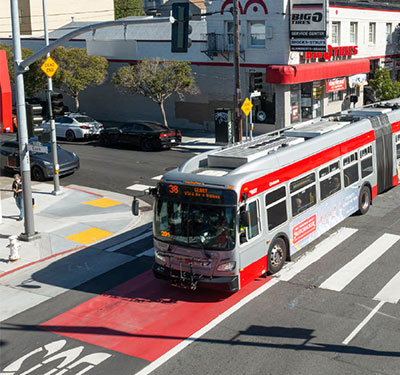
Dedicated Transit Lane
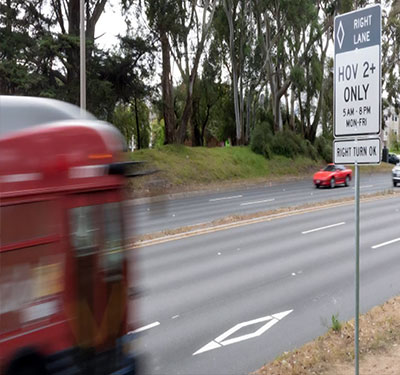
HOV Lane for Transit
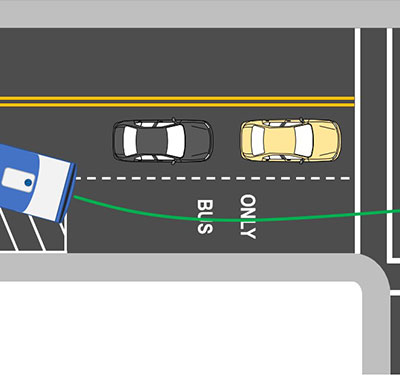
Queue Jump Lane
Signal Priority Treatments
Signal priority treatments include special signal timing strategies and/or infrastructure that support transit operations at signalized intersections. Transit Signal Priority systems can be hardware-based (as show below), centralized or cloud-based.
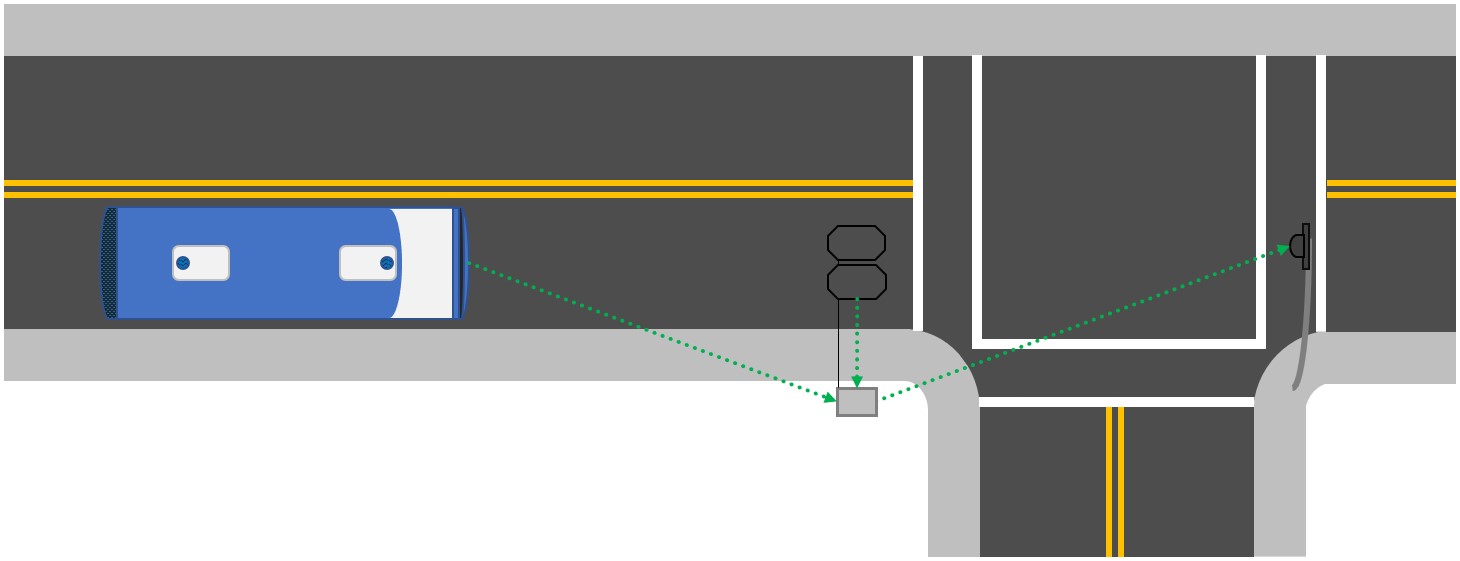
Transit access facilities improve the experience of transit users by providing accessible, comfortable, infrastructure for pedestrians and bicyclists to access transit stops.
The Toolbox provides guidance for infrastructure such as:
Bus Stops, Freeway Access Stations, Bus Bulbs, and Bus Boarding Islands
Bus stop amenities like shelters, shade, seating, lighting, platforms, real-time next-bus arrival information screens, and emergency response buttons
Pedestrian and Bicycle Access
Wayfinding
Mobility Hubs
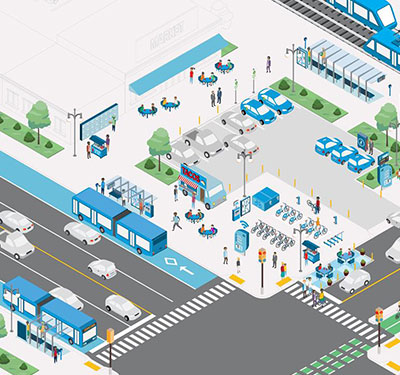
Mobility Hub
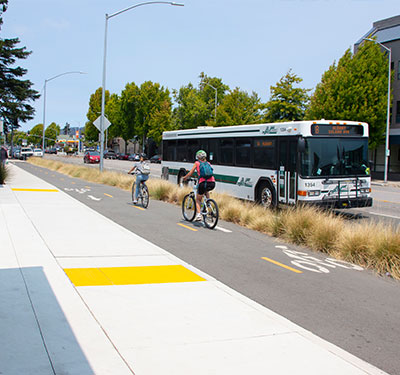
Bike/Walking Path
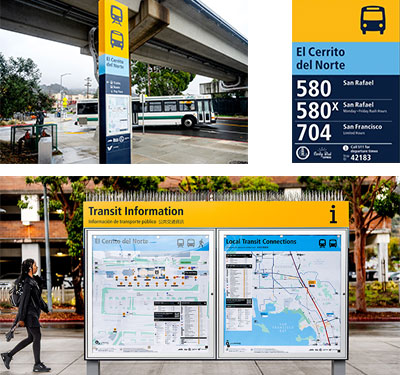
Wayfinding
Next Steps
Transit Needs Assessment
Caltrans District 4 has developed the Transit Needs Assessment (TNA) as part of the Transit Plan. The TNA identifies areas along the State Transportation Network (STN) where increased investment in transit supportive facilities could be the most impactful to transit service.
District 4 is coordinating with Caltrans Headquarters, local and regional partners, and transit operators to align the location-based needs assessment with statewide priorities, local needs, and existing conditions. The Final TNA is expected in Winter 2026. The draft TNA is available to the public to view at the following link:
Caltrans Bay Area Transit Plan - Transit Needs Assessment DRAFT
Staying on Track
This Caltrans Bay Area Transit Plan should be updated at least every four years to align with state and regional plans and priorities and evolving transit needs.
Sign up for Transit Plan Updates!
Sign up here or click on the form below to get news about the Caltrans By Area Transit Plan and other information on how Caltrans D4 supports transit in the Bay.
Email D4transit@dot.ca.gov for inquiries.


